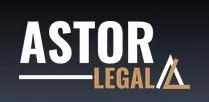Imagine this – you're driving down an open road, pass a police car and decide to flash your headlights to warn of police.
Drivers travelling in the opposite direction will no doubt be thankful. Indeed, some would say it would be un-Australian to act in any other way.
But could you be committing an offence?
What Is the Law on Flashing Headlights to Warn Motorists?
Many point to the fact that there is no specific rule that prohibits the flashing of headlights to warn of police.
There are however a number of other offences that drivers can be charged with.
Offences Under the Road Rules
The use of headlights is governed by Rule 218-1 of the Road Rules 2014 (NSW). It is an offence to drive on a road with the high-beam headlights on if:
- There is another vehicle in front, travelling in the same direction within 200 metres; or
- There is another oncoming vehicle within 200 metres.
The offence carries a maximum penalty of a fine of $2,200. However, generally police will only issue a penalty notice of $112 which incurs one demerit point.
If a person wishes to dispute this fine then they can elect to have it heard in front of a Magistrate at Court.
Once the fine is listed at Court, you will have to advise the Court whether you are pleading guilty or ‘not guilty'.
If you plead guilty, the Court may be willing to dismiss the infringement and not record a conviction pursuant to Section 10 of the Crimes (Sentencing Procedure) Act 1999 (NSW). This will result in no fine being imposed and no demerit points being incurred as well.
If you plead ‘not guilty' and the Court agrees, then the charge can also be dismissed.
But if you are found guilty and convicted, you will incur the demerit point and the fine can be increased up to $2,200.
There is also Rule 219 of the Road Rules 2014 (NSW) which sets out that the use of any light fitted in a vehicle to dazzle (or likely to dazzle) another road user can incur a fine of up to $2,200.
Again, generally a police officer will usually issue an on-the-spot fine of $112. This will also incur a single demerit point.
Hinder Police
Under Section 546C of the Crimes Act 1900 (NSW), it is an offence to hinder a police officer in the execution of their duty. The legislation sets out that:
“Any person who resists or hinders or incites any person to assault, resist or hinder a police officer in the execution of his or her duty shall be liable on conviction before the Local Court to imprisonment for 12 months or to a fine of 10 penalty units, or both.”
It is arguable that flashing your headlights to warn of police would fall into the definition of ‘hindering police' in the execution of their duty (ie. catching speeding drivers).
There is also case law that supports this. The decision of Donnelly v Jackman [1970] 1 WLR 562 held that conduct that renders an action of the police officer more difficult was capable of meeting the definition of hinder police.
This offence can also be charged as a resist arrest offence.
Perverting the Course of Justice
There is also the general offence of perverting the course of justice, which is contained in Section 319 of the Crimes Act 1900 (NSW).
This is by far the most serious offence on this list, as it carries a maximum penalty of 14 years imprisonment.
The offence explains that any person who, “does any act, or makes any omission, intending in any way to pervert the course of justice”, is guilty of an offence.
The definition of perverting the course of justice is contained in Section 319 of the Crimes Act 1900 (NSW) and includes a reference to obstructing, preventing, perverting or defeating the course of justice or the administration of the law.
It could be argued that warning drivers of police by flashing your headlights would fall into this definition.
How Hard is it to Prove?
Despite the above offences, a spokeswoman from the Police Commissioner's office acknowledged that the offences would be very difficult to prove.
“There is an offence of hindering police where it can be proved that the activity has impacted on the ability of police to do their job. In the case of flashing lights at oncoming traffic to warn of a speed camera…the offence would be extremely difficult to prove.”
However, they maintained that it was a dangerous practice that should not be encouraged.
“While there is no specific offence committed in flashing lights to oncoming motorists to warn of a speed camera, police would generally warn motorists not to do this as it may unnecessarily distract other drivers, especially at night,” the spokeswoman said.
Why Do Motorists Flash their Headlights?
An often-cited reason used by motorists for flashing their headlights is that speed cameras are merely revenue-raising devices.
This cuts against the government's statements that speed cameras are a vital part of saving lives.
So where does the truth lie?
Statistics show that Sydney drivers were issued $104 million in speed camera fines in the last 12 months alone. This does not include other offences such as red light camera fines or mobile phone camera fines,
In fact, the top ten speed cameras collected a whopping $22 million.
Peter Khoury from NRMA said motorists have good reason to be sceptical of the governments claims.
He pointed to a pair of speed cameras in the Lane Cove Tunnel that issued a combined $4.4 million in fines.
And then there is the infamous Eastern Distributor camera which rakes in $4.3 million in fines a year.
These cameras are not alone in providing the NSW government with a steady income stream. For example, a camera on the Princes Highway at Kogarah issued more than $1.9 million in fines while one in the Cross City Tunnel delivered $2.6 million worth of fines.
There are then speed cameras in western Sydney such as Stacey Street in Bankstown netted the government $3 million.
Speeding fines start at $119 for motorists driving less that 10km/h over the speed limit.
The fine for not stopping at a red light is $448 and the loss of three demerit points.
Click here for a step-by-step guide on how to avoid a demerit point suspension of your driver licence.
Conclusion
While there is no specific offence that makes it illegal to flash your headlights to warn of Police, there are a number of similar offences that can be charged.
In the circumstances, drivers should be wary of this.
The content of this article is intended to provide a general guide to the subject matter. Specialist advice should be sought about your specific circumstances.

